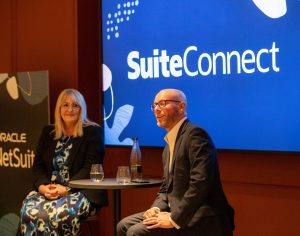What a year 2018 has been. Data scandals, landings on Mars, corporate governance and politics have dominated the news agenda. SMEs have had a varying year. For those exposed to the Carillon scandal, there were many tough decisions to be made, others such as Monzo and Stripe have broken new ground with their expansion and partnerships.
But the big question now is: once we’ve packed up all the Christmas decorations, what will 2019 bring? More than any other year it’s set to be a rollercoaster and one topic will dominate: Brexit. But beyond the political playground, there are other emerging themes that savvy SMBs will look to capitalise on. Here on my thoughts on how the next year will impact SMEs.
Brexit
It’s the elephant in the room, so we might as well cover it off first. It’s a topic that has impacted the operations of big global companies through to one person bands. No one is immune from its impact. SMEs, in particular, have been thrown into limbo by a lack of consumer confidence – an issue that has been compounded in the latter few months of the year.
We talk about SMEs being the engine room of the UK economy but when it comes to business input on what Brexit should look like, they’ve not had a seat at the table. But when I talk to SMEs, what’s paralysing their decision-making and preparation for Brexit is the uncertainty that’s crippling them. SMEs are hugely adaptable and resilient, but they need an idea of what lies ahead in order to respond.
While there is still slews of unclarity, some of our clients here at SAP Concur are hopeful that as European-based companies re-engineer their supply chains in order to derisk them from the impacts of the deal, many UK companies are seeing a surge in domestic business. No one can predict what Brexit will bring, but that much envied tenacity that SMEs have at their core will be their biggest asset in the months ahead.
Demographics
Millennials have long dominated the debate about the changing face of work, but many are now already embedded in the working world. Now companies must brace themselves for Generation Z. This generation is relatively new to the workplace and we’re still finding out about what matters most to them. But a few key themes are emerging. They expect equality for all, they hold companies to high expectations and they value authenticity.
The signs are that this generation will seek a closer personal interest into their work, which will drive many to work in start-ups and SMBs rather than the traditional corporate structure. The innovation and flexibility in smaller businesses will prove incredibly appealing to this generation of workers, and in turn, SMEs will benefit from their values, loyalty and creative thinking.
Talent
Which leads us nicely onto talking about talent. We’ve been experiencing a skills crisis for what feels like almost a decade. As technology continues to change the world around us, that crisis in many areas is only deepening. An unclear relationship with Europe further clouds that issue as many SMEs hire talent from across EMEA.
These macro dynamics need to be considered alongside the hiring process as that evolves in line with how technology continues to change the structures and priorities of smaller businesses. We are moving into an intelligent economy, where a lot of mundane work – such as repetitive financial processes – is now automated. This means that the skill sets of new recruits will change accordingly. SMBs will prioritise greater interpersonal skills and an ability to think analytically – with employees using that automated data to focus on the bigger picture.
The power of the collective
SMEs will also look to empower themselves in 2019. Where the late payments directive and the small business commissioner have been welcome additions to the SME landscape, there is still much to be done. One potential strategy would be a collaboration between multiple small businesses to use the collective, giving them greater purchasing power and the ability to benchmark their activity.
Think independent hotels banding together to offer a loyalty scheme for all their shared customers or a hub where they can access the advice of experts, mentors or peers. Or being able to benchmark the benefits package you’re offering? Customer satisfaction scores? Across not only your own sector but multiple ones?
With these insights, your business can become a powerhouse, attract the best talent and continue to pioneer bigger and better customer experiences. One of the best traits of SMEs is their agility, equipped with the right athleticism, FTSE 100 companies will want to be them.
2019 certainly looks set to be a mixed bag, but it’s important that SMEs remain focused on the opportunities that lie ahead, not just the challenges, because by doing that they will put themselves in the best possible position to thrive pre and post-Brexit, whatever form it takes. ![]()
Share via:



















































